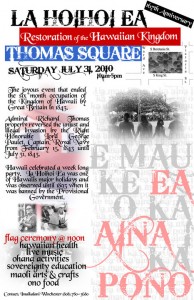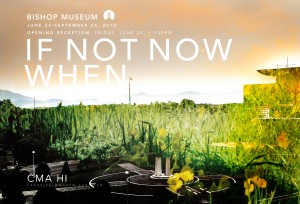http://closethebase.org/
FOR IMMEDIATE RELEASE
April 20, 2010
CONTACT: John Feffer, Institute for Policy Studies
johnf@ips-dc.org, 202-234-9382, cell: 510-282-8983
New U.S.-Japan coalition demands closure of the Futenma U.S. Marine Corps base and opposes the construction of new bases in Okinawa and Tokunoshima; Holds rally in Washington and posts full-page ad in Washington Post
Washington – April 19 – In the past six months, the governor, mayors, media, and citizens of Okinawa have joined to demand the closure of the Futenma U.S. Marine Base and oppose any new military base construction—in historic solidarity.
On this side of the Pacific Ocean, the Network for Okinawa (NO), an unprecedented grassroots network, has drawn together representatives from peace groups, environmental organizations, faith-based organizations, academia, and think tanks to support these same goals.
The coalition represents hundreds of thousands of Americans concerned about democracy and environmental protection in Okinawa.
On April 23, 2010, the Washington-based coalition will send President Obama and Prime Minister Hatoyama a letter signed by more than 500 organizations demanding the immediate closure of Futenma and the cancellation of plans to relocate it to Henoko Bay.
Network for Okinawa member, Peter Galvin, Conservation Director at the Center of Biological Diversity, explains what is at stake, “Destroying the environmental and social well-being of an area, even in the name of ‘national or global security,’ is itself like actively waging warfare against nature and human communities.”
On April 25, 2010, members of the Network will rally in front of the Japanese Embassy in Washington D.C. at 2 p.m. They are demonstrating to demand the immediate closure of Futenma and to oppose new military base construction at any site in Okinawa, including the island of Tokunoshima. (Tokunoshima is a small northern island in the Ryukyu archipelago; historically a part of Okinawa.) The D.C. protest is an American expression of solidarity with the expected 100,000 Okinawans marching on the same date.
John Lindsay-Poland, of the Fellowship of Reconciliation, advocates nonviolent conflict resolution instead of war to resolve international disputes: “Military bases in Japan and other countries are material projections of our nation’s will to use war and violent force. War is not only brutal, and ecologically devastating, but unnecessary. I want our country to have a different relationship with other peoples of the world.”
During the week of April 26, 2010, the Network and its Tokyo-based affiliated coalition, the Japan-US Citizens for Okinawa Network (JUCON), will place a full-page ad in the Washington Post. JUCON (http://jucon.exblog.jp/) is a coalition of Okinawa and Japan-based NGOs, citizens groups, journalists and prominent individuals.
“The Washington Post ad will draw attention to this critical issue. It will put pressure on both Washington and Tokyo to do the right thing: respect the democratic desires of the Okinawan people and the fragile environment of this beautiful island,” says John Feffer, spokesperson for Network for Okinawa.
BACKGROUND:
Most Americans have heard of the Battle of Okinawa. However, most don’t know Okinawa’s location; or that the U.S. maintains thirty U.S. military bases and facilities on twenty percent of this island, the size of Rhode Island. U.S. troops constructed the first U.S. military bases for the planned invasion of Japan and never left—even after the U.S. “reverted” Okinawa to Japan in 1972.
The U.S. Marine Futenma base—made infamous by the 1995 Marine gang rape of a twelve-year-old girl—generates noise pollution, accidents, and crimes on a daily basis. In fact, former Secretary of Defense Donald Rumsfeld called Futenma the “most dangerous U.S. base in the world.” The next year, the United States and Japan announced Futenma’s closure and the construction of a new base on the east coast of Okinawa in Henoko, a tiny fishing village.
Local residents immediately challenged this plan. During the past fourteen years, Henoko has become a lightning rod for Okinawan grievances over 65 years of unwanted U.S. military bases and over 130 years of unwanted colonial domination by Japan. That’s because Henoko’s emerald waters and coral reef are home for about fifty critically endangered dugongs, a symbol of Okinawan peaceful culture based on the sanctity of life (nuchido takara) and reverence for nature. In 1966, Okinawans designated the dugong (cousin to the manatee) as their living national monument. Nuchido Takara directly translates as “Life is a treasure.”
Okinawa’s unique biodiversity (the island known as the “Galapagos of the East”) captured the attention of transnational environmentalists.
In 2003, a coalition—including the Japan Environmental Lawyers Federation (JELF) and U.S.-based Center for Biodiversity, represented by Earth Justice—sued the U.S. Department of Defense to halt the construction of the base. This marked the first-ever international lawsuit under the U.S. National Historic Preservation Act, as the dugong is protected under Japanese cultural properties law. On January 24, 2008, a U.S. Federal District Court in San Francisco delivered a historic ruling in favor of the plaintiffs, finding that the DoD plan had violated the NHPA. Despite this ruling, the DoD has continued to insist upon Henoko as a site for a Futenma “relocation.”
The Network for Okinawa (http://closethebase.org/) is sponsored by the Institute for Policy Studies in Washington. Members include: American Conservative Defense Alliance, American Friends Service Committee, Center for Biological Diversity, Fellowship of Reconciliation, Greenpeace, Institute for Policy Studies, Just Foreign Policy, Pax Christi USA, the United Methodist Chuch, Veterans for Peace, and Women for Genuine Security.
Members of the Network for Okinawa available for interviews:
• Peter Galvin, Center for Biological Diversity. pgalvin@biologicaldiversity.org; 520-907-1533.
• Kyle Kajihiro, Program Director, American Friends Service Committee – Hawai’i Area Office. kyle.kajihiro@gmail.com; O: 808-988-6266; C: 808-542-3668.
• John Lindsay-Poland, Director, Fellowship of Reconciliation Latin America program, Oakland, California, is active in the global No Bases network and author of Emperors in the Jungle: The Hidden History of the US in Panama (Duke). johnlp@igc.org; C: 510-282-8983.
• Doug Bandow, Robert A. Taft Fellow, American Conservative Defense Alliance and former Special Assistant to President Ronald Reagan. ChessSet@aol.com; 703-451-9169.
• Ann Wright, Retired Army Colonel, former US. Diplomat. microann@yahoo.com; C: 808-741-1141.




